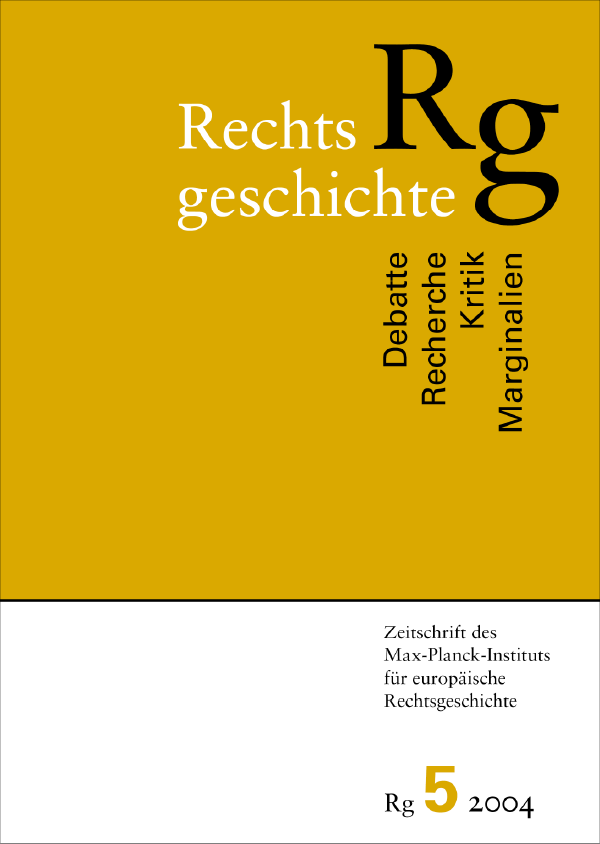Vom Kerbholz zur Konzernbilanz?
Wege und Holzwege zu einem autonomen Recht der global economy
DOI:
https://doi.org/10.12946/rg05/107-127Abstract
The transnational law merchant or lex mercatoria claims to have its roots in a medieval law merchant, whose growth is said to have been facilitated by the commercial revolution of the eleventh and twelfth centuries, when mercantile law in the West supposedly came to be viewed as an integrated, developing system – a body of law. This concept of a medieval lex mercatoria meshes well with the notion of the universal character of commercial law, which has gained considerable influence through the work of Levin Goldschmidt. His thesis continues to influence the current debate without ever having been tested thoroughly. However, the nature of the medieval law merchant can only be divined by having recourse to those sources which are constantly quoted but rarely consulted: the Little Red Book of Bristol, Fleta and Gerard Malynes’ Consuetudo vel Lex Mercatoria: Or, The Ancient Law-Merchant. It can be shown that the medieval law merchant was not so much a system of mercantile practice or commercial law as an expeditious procedure especially adapted for the needs of men who could not tarry for the common law.
Downloads
Published
How to Cite
Issue
Section
License
Copyright (c) 2004 Author

This work is licensed under a Creative Commons Attribution-NonCommercial-NoDerivatives 3.0 Unported License.





